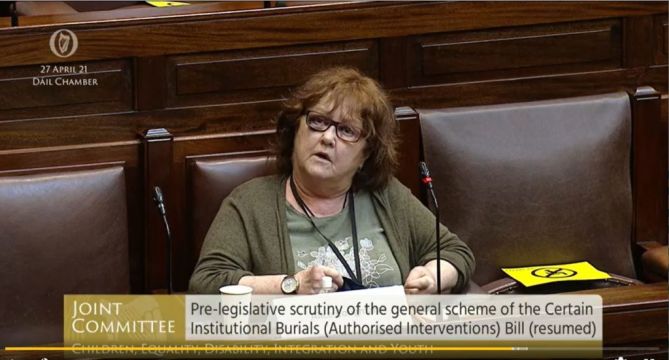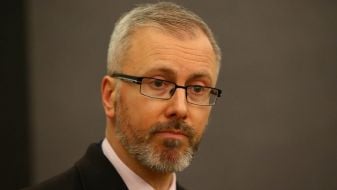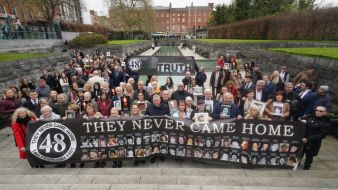More women will die without knowing whether their child is “rotting in the ground or in a septic tank” unless legislation is passed to allow the excavation of unmarked graves in all Irish institutions, a survivor of one mother and baby home has said.
Alice Coughlan, a survivor of the Bessborough institution, described the Government’s Burials Bill as “divisive” and said she does not support it wholeheartedly, but that it needs to be passed so there can be “no more delays”.
Ms Coughlan, who is a member of the Collaborative Forum of Former Residents of Mother and Baby Institutions, made the comments at the Children’s Committee, which met to discuss the Bill which would allow the exhumation and reburial of bodies at mother and baby institutions.
The Bill also provides a basis for identification using DNA samples from exhumed bodies and from people who are or may be close relatives of the unidentified.
It would allow surviving relatives to be aware of the circumstances of their family member’s death, where they have been buried in an unmarked site.
She said: “For my part, I support the Bill, though not without reservation. As a survivor of Bessborough Mother and Baby Institution, as a mother whose child was taken, I can say from experience that to lose a baby – to not know whether your child is alive or dead – is the worst experience you can ever imagine.
“I know my child survived, but so many didn’t, and for far too many women, the question remains.”
Ms Coughlan told the committee it has been known since 2017 that there are about 800 bodies buried at the Tuam mother and baby institution, yet to date there has been “no progress” in identifying the children and “in providing closure for the survivors who fear that their child, their brother, their sister is among the bodies”.
“Four years later, and these babies have yet to receive a proper burial,” she said.
“It is for this reason that I think this Bill must pass into legislation as soon as possible.”
She also told the committee that there are about 900 bodies – women and children – missing in Bessborough, which she said must be addressed.
“I believe there can be no delay,” she said.
“The longer we wait to excavate the bodies, the more women will die without knowing whether their child is rotting in the ground or in a septic tank.”
Ms Coughlan also told the committee that she was forced into putting her daughter up for adoption.
“I was told I wouldn’t be getting my daughter so I could either agree to adoption. I walked in, signed a page, I was given a name, a new name, you wouldn’t even be given that in Portlaoise or Mountjoy if you were a murderer.
“I was given a separate name and told if I didn’t agree to adoption, my child would be in an institution until they were at least 16. Would you call that a free choice?”
She said she told her story to the Commission of Investigation into Mother and Baby Homes but she understood why “a lot of women” did not come forward.
The committee also heard calls from TDs, senators and organisations for the state to take ownership of all lands and burial grounds associated with the mother and baby institutions.
Maree Ryan-O’Brien, from adoptees’ rights group Aitheantas, said a compulsory purchase order needed to be made for all sites.
“We believe that the state should take ownership of all burial grounds, both those identified and those yet to be identified, by means of compulsory purchase order, an established system under constitutional law, to fulfil its international human rights obligations and to preserve and protect these grounds,” she said.
Ms Ryan-O’Brien also said the organisation, which campaigns to give Irish adoptees access to their own birth information, also wanted a role to be played by a coroner in investigating and establishing the cause of death of the babies.
“As highlighted by other submissions, we also agree that there are fundamental questions on human rights and burials, our obligations in law and the European Convention on Human Rights all of which require a more thorough investigative approach involving inquests, forensic investigation and storage of remains than is provided for in the Bill,” she added.







